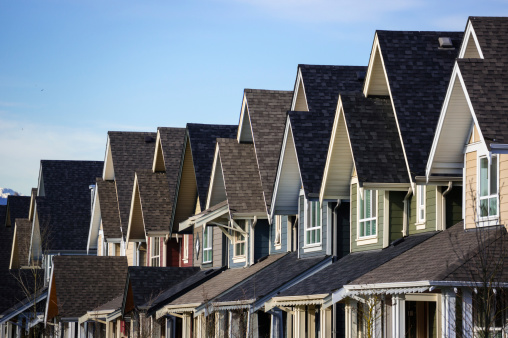
Among major metropolitan areas, all-cash sales were highest five Florida cities: Cape Coral-Fort Meyers (73.6%), Miami (67%), Sarasota (65.1%); Palm Bay (64.1%) and Lakeland (61.8%). Other major metro areas with more than 50% all-cash sales included New York (57%); Columbia, S.C. (56.1%); Memphis (54.9%); Detroit (53.5%); Atlanta (53.2%); and Las Vegas (52.2%). The data were collected and reported by real-estate services firm RealtyTrac.
A RealtyTrac executive said:
Strict lending standards combined with low inventory continue to give the advantage to investors and other cash buyers in this housing market. The good news is that as institutional investors pull back their purchasing in many markets across the country, there is still strong demand from other cash buyers — including individual investors, second-home buyers and even owner-occupant buyers — to fill the vacuum of demand left by institutional investors.
More than half (52%) of the all-cash purchases in the month of March were made by buyers with a different mailing address than the property address. This indicates either institutional investors or second-home buyers.
The average sales price of an all-cash purchase in the first quarter was $207,668, a full 13% below the average estimated full-market value — $237,900 — of the properties that were purchased.
RealtyTrac also reported some anecdotal information from brokers around the country. A California agent said:
We are seeing a rise in foreign buyers purchasing high-end homes, which is contributing to the rise in all-cash purchases. Inventory shortages as well as lending regulations favor the all-cash buyer, which explains the increase in cash sales on both a national and local level.
ALSO READ: Ten Countries Racing to Buy American Homes
According to RealtyTrac, 30% of all institutional purchases were properties in the foreclosure process and 15% were bank-owned properties (REO). The average purchase price paid by an institutional investor in the first quarter was $128,747, 18% below the average “after repair” estimated market value — $156,529 — of the homes being purchased. Combine these points with an overall decrease in the number of distressed properties on the market and the reason for the decline in institutional all-cash sales begins to clear up.
Institutional buyers are looking either to flip their purchases quickly for a profit or to rent them out. To make either scenario profitable the buyer needs to be able to find cheap properties in the right locations. As those properties are sold and fewer come onto the market, the institutional investors look elsewhere.
Non-institutional buyers, whether foreign buyers looking for a high-end investment or U.S. citizens looking either for a quick flip or a second home, are not looking primarily for distressed properties. The good news for these buyers is that home price increases have begun to slow down as the non-distressed property inventory slowly rises.
ALSO READ: The 10 Best Cities to Flip a Home
Are You Ahead, or Behind on Retirement? (sponsor)
If you’re one of the over 4 Million Americans set to retire this year, you may want to pay attention.
Finding a financial advisor who puts your interest first can be the difference between a rich retirement and barely getting by, and today it’s easier than ever. SmartAsset’s free tool matches you with up to three fiduciary financial advisors that serve your area in minutes. Each advisor has been carefully vetted, and must act in your best interests. Start your search now.
Don’t waste another minute; get started right here and help your retirement dreams become a retirement reality.
Thank you for reading! Have some feedback for us?
Contact the 24/7 Wall St. editorial team.
